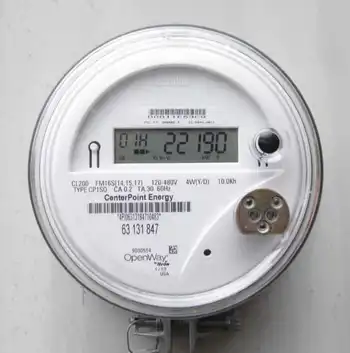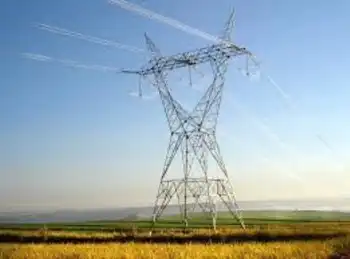Environmentalists Head for the States
By New York Times
Protective Relay Training - Basic
Our customized live online or in‑person group training can be delivered to your staff at your location.

- Live Online
- 12 hours Instructor-led
- Group Training Available
These changes will come about not because of anything Washington has done, but through a law passed by the Maryland Legislature. And environmentalists plan to introduce the same bill in about a dozen more states this year.
The states may be taking the lead on electricity usage standards, just as they did on car and truck pollution in the 1980's and 1990's, and as they soon may on power-plant pollution.
"Show me a good federal standard, and I'll show you three or four states that did it first," said Rob Sargent, a spokesman for the National Association of State Public Interest Research Groups. "State policy kind of raises the bar."
California began the regulatory charge with a 1974 law, signed by then Gov. Ronald Reagan, mandating energy efficiency standards for a number of appliances. In 1987, as president, he signed the first federal law covering refrigerators and other appliances.
States have long been considered "policy laboratories," but the reason that they often lead the way in the closely linked areas of energy and pollution, experts say, is because the federal government moves so slowly. For example, the energy bill that President Bush wants to sign includes new efficiency standards. But the legislation is so packed with other provisions that it is now stalled in Congress.
In contrast, as environmentalists press this year for new electricity efficiency standards in New Jersey, Pennsylvania, Georgia, Florida, Illinois and all the states in New England, they are confident, at least, that their efforts won't be derailed by, say, a fight in Congress over giving new subsidies for nuclear power production.
Working through the states also lets environmentalists pick those states where saving energy has the greatest impact, said Isaac R. Elnecave of the Northeast Energy Efficiency Partnership, a nonprofit group in Lexington, Mass.
Mr. Elnecave said that electricity is much more expensive in Massachusetts than Arizona. For that reason, he said, everyone, politicians included, are likely to give improving energy efficiency greater priority.
"When you don't use a kilowatt-hour of electricity, that's 10 cents in Massachusetts, and 5 cents in Arizona," Mr. Elnecave said.
Finally, advocates say, the state-by-state approach sidesteps the Washington problem of a regulatory law that has been passed, but still needs written regulations for it to go into effect.
A 1992 law, for example, required the Energy Department to issue new efficiency standards for home furnaces, but this has not been carried out. The law also required new standards for central air-conditioners, but those standards weren't issued until about three years ago, and are not scheduled to take effect until 2006.
In fact, the Bush administration tried to introduce new, weaker standards but was defeated by a lawsuit brought by environmentalists and 10 states.
"In an ideal world, you want national standards," said Kit Kennedy, a lawyer with the Natural Resources Defense Council, which was instrumental in bringing the air-conditioner suit.
"In an ideal world," she added, "the Department of Energy is doing its job, setting standards and keeping up with schedules. But in the world we live in, the Department of Energy is sitting on its hands."
David K. Garman, assistant secretary of energy for energy efficiency and renewable energy, said that Congress gave the Energy Department complicated instructions. It laid out seven criteria for new standards, and the first is not energy, but the effect on manufacturers and consumers.
"If the law told us to act based on energy savings alone, it would be an easy job," he said.











